The unique thing about New York City is that it’s the melting pot of America. A term coined in 1908, it still remains true to this day. What’s so special about having so many nationalities, ethnicities, and cultures in one spot is the opportunity to try curious delicacies without going out of the city. When we travel, especially out of the country, one of the perks is getting to eat food that is different from ours, but that’s all localized with NYC.
Having all these foods from different cultures can also have one experiencing delicacies that they would normally have to go out of the country to try. A delicacy is a rare or expensive food that’s nice to eat. While the foods on this list are delicacies in their respective cultures, they might be a little bit curious or intimidating for outsiders. However, if you’re a resident of NYC or are visiting, why not just go for it? Worst case: you don’t enjoy the food and never have to try it again.
Balut
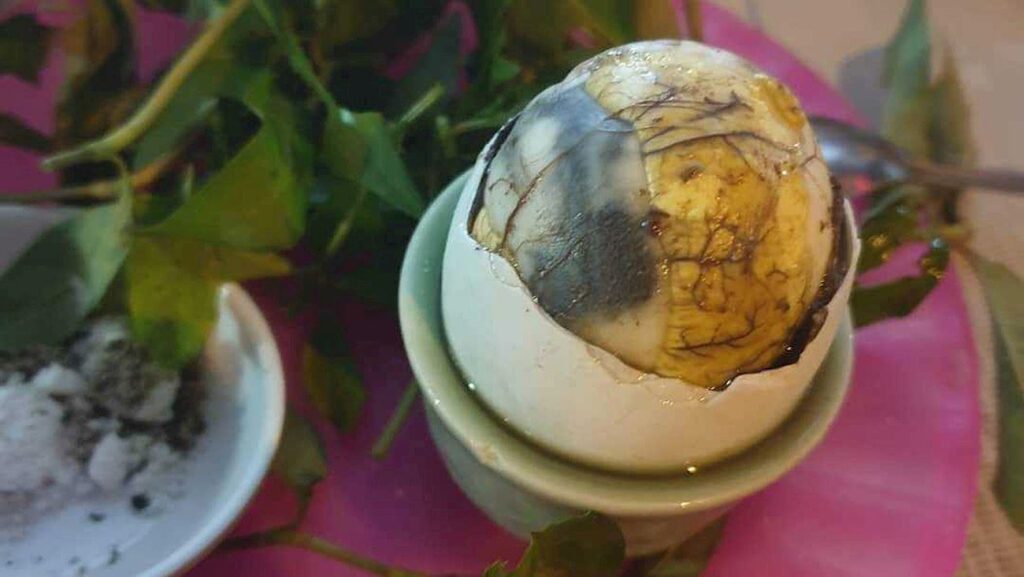
This popular egg dish is extremely popular in Southeast Asia and especially the Philippines. It’s essentially an unhatched baby duck egg. Balut is “made” when a fertilized duck egg is incubated and the fetus starts to form. Experts say the best egg is incubated for 17-18 days. Then, it’s hard-boiled like a normal egg. Unlike the boiling situation of a normal egg, when boiling balut, the liquids inside the egg turn into a broth that gives it its flavor. Most people will eat this cooked, right after boiling for a warm broth, but some prefer it raw. Locals in the Philippines will eat balut as a street food or pair it with a drink. If you’re wanting to try some, Phil-Am Food Mart in Woodside, Queens has some to buy!
Raw Octopus
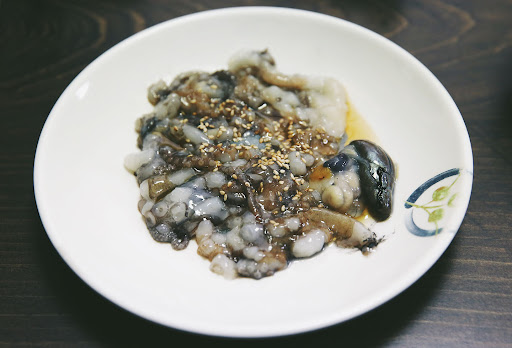
Ethical reasons aside from eating an extremely intelligent animal, raw octopus is a fan-favorite delicacy in Korea. In Korea you can order raw octopus in certain restaurants. However, it’s more common to visit fish market, select your octopus, and have a nearby market prepare and serve it to you. The tentacles are the parts that are cut up and served, usually with different sauces for flavor. When you get the dish, the neurons in each tentacle are still alive which result in watching your food move. This is a dish that is not recommended if you’re squeamish about your food still being able to move, but it is definitely an experience to at least try it once. You can try it out at Sik Gaek, a Korean restaurant in Queens that is famous for its raw octopus.
Menudo
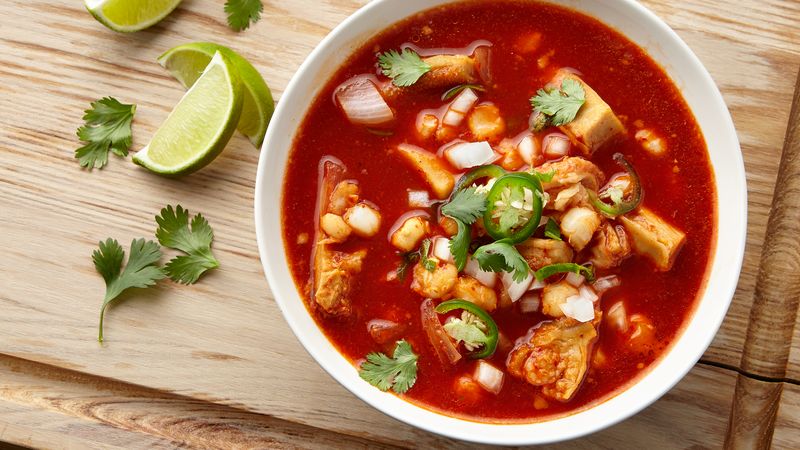
In Mexican cuisine, Menudo is a traditional soup made with the lining of a cow’s stomach (tripe). This dish takes a while to make, as the tripe needs to be boiled for several hours in order to get rid of its strong smell. Some say that the room can smell like a barnyard when the tripe is cooking, so the longer it boils, the less it smells. When traditionally prepared, you’ll rinse the tripe, boil for three to four hours along with an onion to eliminate the odor, and then remove and cut it into strips. The boiled tripe combines with a broth of oregano, red chili powder, lime juice, and hominy. With all the ingredients combined, it makes for a delicious soup that is hearty and filling. Tulcingo Del Valle in Manhattan has some to try.
Century Egg
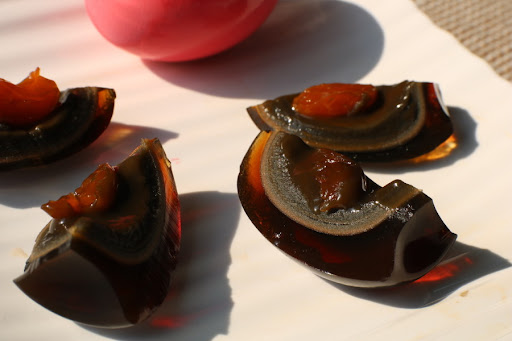
This Chinese delicacy can be found in most Chinatown markets across the city. It’s a duck egg identified by its gray spotted shell, clearish black “whites”, and a dark green yolk. For people who are smelling it for the first time may say it has a strong sulfur smell. The outside is squishy and the yolk itself is mushier as it gets to the center. Chinese people usually prepare the egg like a side dish by slicing it up and mixing it with vinegar and soy sauce. Try pairing it with congee, rice, or eat it by itself.
Gopchang
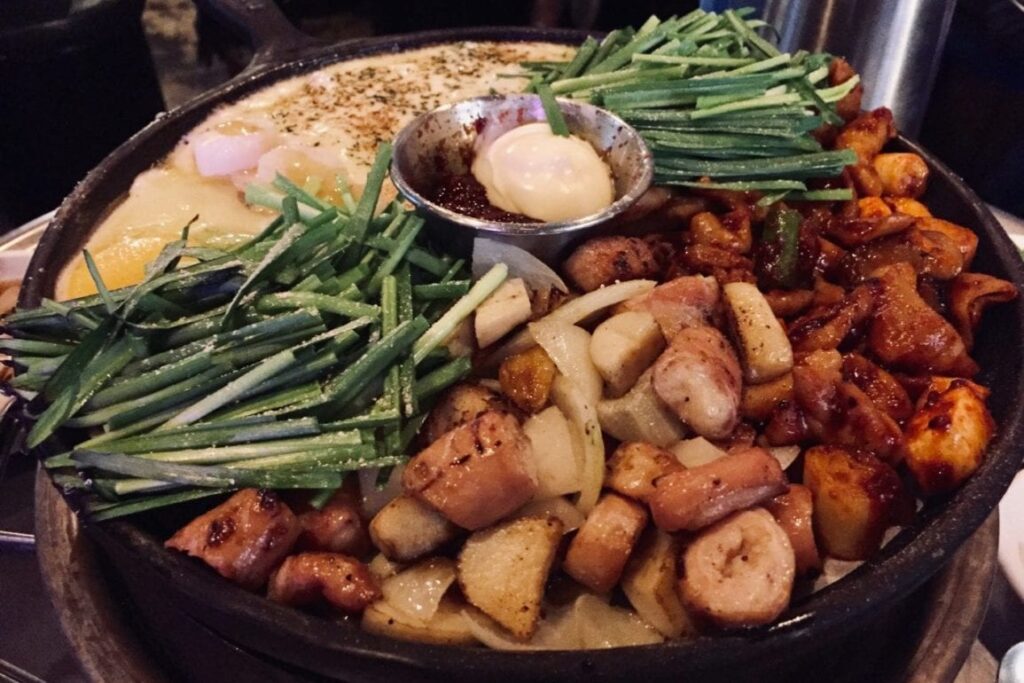
As Korean BBQ makes its waves around the country, it takes an already well-deserved spot in NYC. But as an outsider wanting to try KBBQ for the first time, what do you order? Aside from the briskets, pork belly, and wraps emerges a hidden hero: gopchang. Gopchang is beef intestines and is a popular go-to for BBQ in Korea. When people think of intestines, the main worry they have is if it is clean. Don’t worry, it is definitely a safety protocol for KBBQ restaurants to see if the meat is clean. Like tripe, gopchang is a little chewy, but usually packed full of flavor. It helps that most KBBQ restaurants will provide sauces to dip your meat in, just in case you’re not willing to eat it straight off the grill. Gopchang Barbeque has Manhattan and Flushing locations.
Surströmming
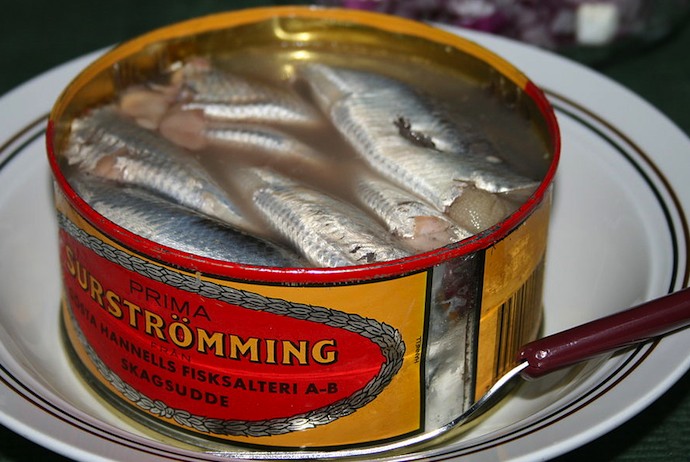
This traditional Swedish fish consists of small salted and fermented Baltic herring. Distributors place the fish in a tin can, where it continues to ferment. It’s a Swedish delicacy that popular during Surströmming festival, but it’s also great for sharing with your friends and a pint of beer. The best season to eat the fish is August through September. Since it’s fermented for so long, once the tin is opened, it can have a strong, pungent smell especially for those who are not used to it. However, the Swedes say it doesn’t taste as bad as it smells. In fact, people have described it to taste like a fishy blue cheese. And like blue cheese, it is definitely a delicacy that has acquired taste. Imported goods come with a higher cost, making these treats a little pricey. Bon Bon NYC has them for pickup and delivery (certain neighborhoods).
Editor’s Note: We updated this article to enhance readability.




